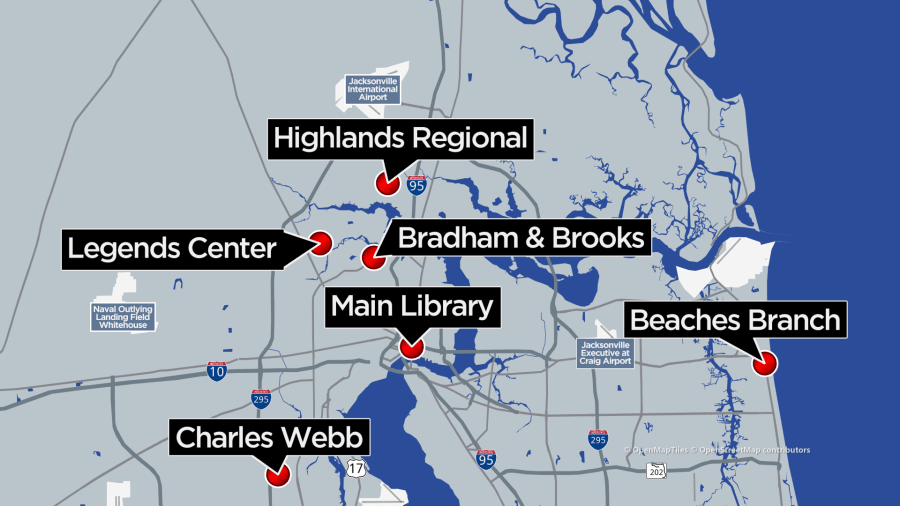JACKSONVILLE, Fla. – Jacksonville Mayor Donna Deegan on Monday announced plans to help keep city residents cool when extreme temperatures hit.
Deegan was joined by Chief Health Officer Dr. Sunil Joshi and Emergency Preparedness Director Andre Ayoub to announce the plan to respond to excessive heat during a news conference.
The plan includes using JTA buses as cooling centers and also using the buses to take residents to air-conditioned public libraries and community centers to escape the heat. The city said the plan will be activated when heat indexes — what the temperature feels like to the human body when relative humidity is combined with the air temperature — hits a certain level.
JFRD Chief Keith Powers said when a heat emergency is issued, or when the heat index is between 108 degrees and 112 degrees for three straight days or over 113 degrees for one day, it will trigger the activation of six cooling centers across the city, which includes locations on the Westside, Northside, downtown and the beaches, among others.

The locations were picked using the social vulnerability index to help protect those most at risk.
The centers, when active, will be open from 12 p.m. until 6 p.m. on Monday through Saturday.
All of the plans for the heat alerts as well as when they have been activated will be posted on JaxReady.com.
Temperatures are expected to be in the lower-to-mid 90s all week and the heat index will be over 100 degrees, but there are no plans to open the cooling centers as of now.
The heat this summer has been intense without any significant breaks. Hotter-than-average conditions have dominated. Jacksonville reached 98° for eight days in July.
This steak of heat catapulted the city to its hottest 30 days on record to date. Jacksonville could set a new hottest monthly record for the city.
MORE: Jacksonville is on track to its hottest July on record
But this heat is not specific to Jacksonville. Every major city in Florida is seeing its hottest 30-day average temperatures.
The Deegan administration has also created a new task force to address the issue of extreme heat.
The concern is not only what’s happening now with the heat but what could be coming down the line.
“We have to be thinking about summers in the future, too. Just like we have a hurricane preparedness plan every year, we’re going to now need to have an excessive heat plan as well so we are all prepared,” Joshi said last week.

